If my brain in injured, how will I ever recover?
This is a question faced by many who sustain brain injuries. Our mission is not only to provide you with information, but also to provide you with hope. And there is hope for recovery.
The brain is very complex and so does brain injury. There are many things that can affect how recovery happens. These factors are different for each person and each injury is affected by the following:
- patient’s age and health before injury
- the presence of alcohol or other drugs at the time of injury
- type and speed of emergency care received
- type of hospital care received
- support of family and friends
- patient’s personality and ability to cope with stress and crisis
- rehabilitation and good follow-up
Phases of Recovery
One of the earliest studies of brain injury recovery examined the stages a patient experiences as the brain heals. This study discussed eight stages or levels of recovery. This scale is called The Rancho Los Amigos Scale, named after the rehabilitation hospital that conducted the study.
The following are the different levels widely used in North America. They describe a person’s thinking and behaviour.
LEVEL 1 No response (to any stimuli)
LEVEL 2 Generalized response (non-purposeful, inconsistent)
LEVEL 3 Localized response (purposeful, consistent)
LEVEL 4 Confused, agitated, inappropriate (short-term memory impaired, dependent on all aspects of care)
LEVEL 5 Confused, non-agitated, inappropriate (with direction and assistance can perform previously learned tasks
LEVEL 6 Confused, appropriate (memory problems, completes previously learned tasks with supervision)
LEVEL 7 Automatic, appropriate (can initiate and carry out tasks, more aware but lacks ability to problem solve)
LEVEL 8 Purposeful, appropriate (more responsible for self; able to learn new tasks; more aware of deficits; stress)
Levels 1-3 are the Acute Phase—the time after injury until the patient’s medical condition is on a stable course. Rehabilitation begins in this phase.
Even when the patient scores 3 on the Glasgow coma scale (severe brain injury) and is completely unresponsive, it is possible that some degree of awareness may still exist. It is important that family, friends and medical staff assume this to be the case.
- Never speak in front of the patient as though he or she were not present.
- If the conversation is not one that you would ordinarily want the individual to hear, it is best to move this to a location beyond their hearing distance.
- Every effort should be made to speak in a way that includes the individual or at least acknowledges that you respect his/her presence.
